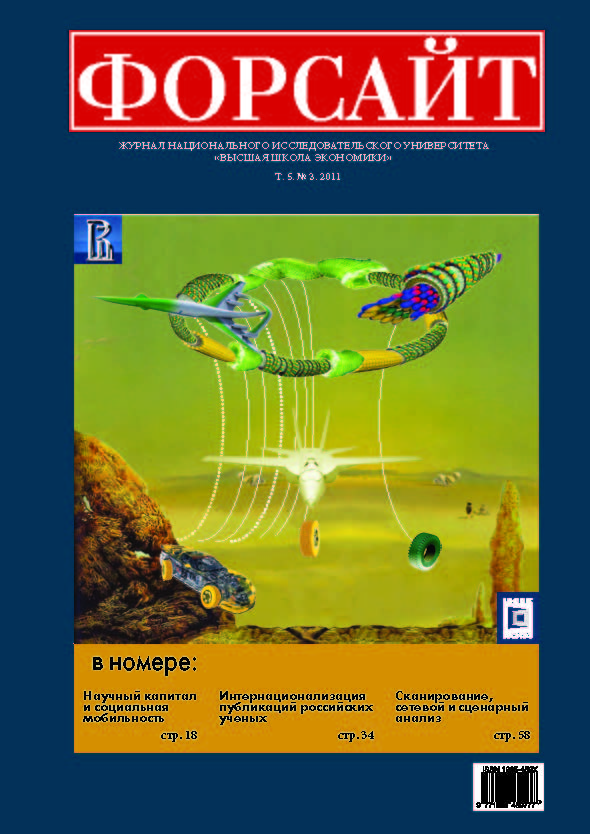Abstract
This paper concerns the misalignments in science citation indexes, which are increasingly used to assess research performance and the efficiency of S&T policy. Alongside evident advantages of using citation indices are serious shortcomings: their focus on predominantly English-language publications that match certain publishing criteria, as well as the significantly larger share of engineering disciplines over humanities in publications. In addition, the co-existence of internally as well as externally oriented scientific communication markets creates difficulties for comparing the publishing performance of scholars from different countries and interpreting these data. As a result, indicators of publishing performance do not reflect the state-of-the-art in national science — rather they demonstrate its internationally “visible” segment and the rate of internationalization for selected disciplines.
The paper associates the main reason for this misalignment in historical factors. Historically, international science uses a common language for scientific communication, and it is now dominated by Anglo-American academic publishers.
Russia, the subject of this study, still has a predominantly locally oriented market for research publications, and Russian science remains poorly integrated into the international scientific process. The study argues that in assessing scientific contributions, a country’s integration in to the global scientific communication system must be considered as well as the structure and dynamics of international publications.
In conclusion, it is added, that using bibliometric tools is not alone sufficient to assess scientific contributions. One must also consider national publication and citation practices, the national system of scientific communications, and mechanisms of acquiring a reputation in comparison with those of other nations.
References
Boekholt P., Edler J., Cunningham P., Flanagan K. (2009) Drivers of International Cooperation in Research. Final Report. http://ec.europa.eu/research/iscp/pdf/drivers_sti.pdf.
CREST (2007) Internationalisation of R&D - Facing the Challenge of Globalisation: Approaches to a Proactive International Policy in S&T. Policy Approaches towards S&T Cooperation with Third Countries. Analytical Report. December. Brussels: CREST Working Group.
Idenburg P., Stalnacke P., Schuch K., Nyiri L., Ventskonvsky O., Mandrillon M.-H., Sokolov A., Eikenberg H., Sorensen O.J. (2004) INTAS Evaluation - External Evaluation Report on the Programme of the International Association for the Promotion of Cooperation with Scientists from the New Independent States of the Former Soviet Union (INTAS) Covering the Period 1993-2003. Brussels: INTAS.
Schuch K. (2002) Joint RTD Projects between the EU and Eastern Europe - What Does Really Matter? // Bell E., Gokhberg L., Schuch K. (eds.) Dialogue on S&T between the European Union and the Russian Federation. Moscow-Vienna: CSRS. P. 133-148.
Schuch K. (2010) Transferpotential bilateraler wissenschaftlich-technischer Projekte fur Einreichungen im Europaischen Forschungsrahmenprogramm. ZSI Discussion Paper № 12. Wien: ZSI.

This work is licensed under a Creative Commons Attribution 4.0 International License.

